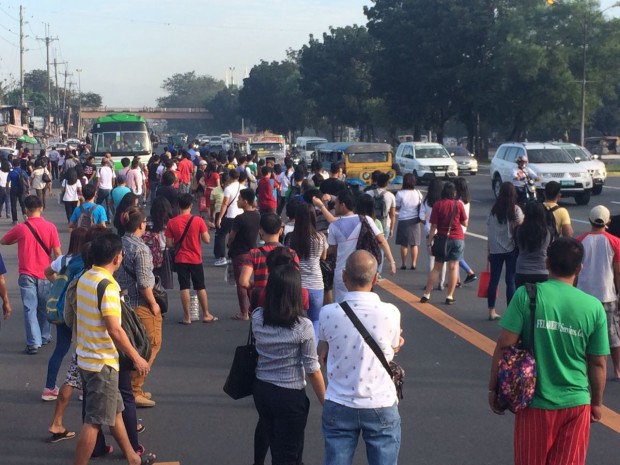PUJ drivers, operators find ally in urban poor agency chief

Stranded passengers seen at Batasan, Commonwealth, Quezon City at the height of Monday’s PUJ strike. NIÑO JESUS ORBETA / Philippine Daily Inquirer
Presidential Commission on the Urban Poor (PCUP) chairman Terry Ridon on Tuesday urged the Land Transportation Franchising and Regulatory Board (LTFRB) to exercise some consideration for drivers and operators following Monday’s transport strike against the proposed modernization program that has affected thousands of commuters.
“As the agency mandated to serve as the direct link between the urban poor and the national government bodies, we come to the defense of drivers and operators who as informal workers comprise a large part of the urban poor sector,” Ridon said in a statement.
“At the center of the issue is whether there are alternative livelihood opportunities for all affected drivers and operators which are either equivalent to or better than what they have at the moment, income-wise,” he added.
Piston, Stop and Go Coalition and No to Jeepney Phase Out Coalition held the strike to protest for the phasing out of jeepneys as part of the Department of Transportation’s (DOTr) modernization program.
READ: Passengers stranded as transport strike hits Metro, provinces
The PCUP chairman called the modernization program “unacceptable,” as it goes against the pro-poor commitments of President Rodrigo Duterte, and said that if the agency cannot provide alternative livelihood, drivers and operators will be burdened with new loans and debts because the proposed capitalization requires P7 million from jeep operators.
He said that with such “enormous requirement,” it seems like taking out existing operators is the main objective of the program.
“Ultimately, government policy on transportation should reflect the prevailing economic conditions of all stakeholders, and propose a way forward to benefit the greatest number of our people,” Ridon said.
He said that it doesn’t have to begin with the “wholesale phase-out of a cultural icon,” and said that though change should come to the jeep sector, it does not have to be done in “one fell swoop.”
“Pilot routes may be considered, participating voluntary operators may be encouraged, and the role of subsidy to implement emissions’ goals may be studied,” he added.